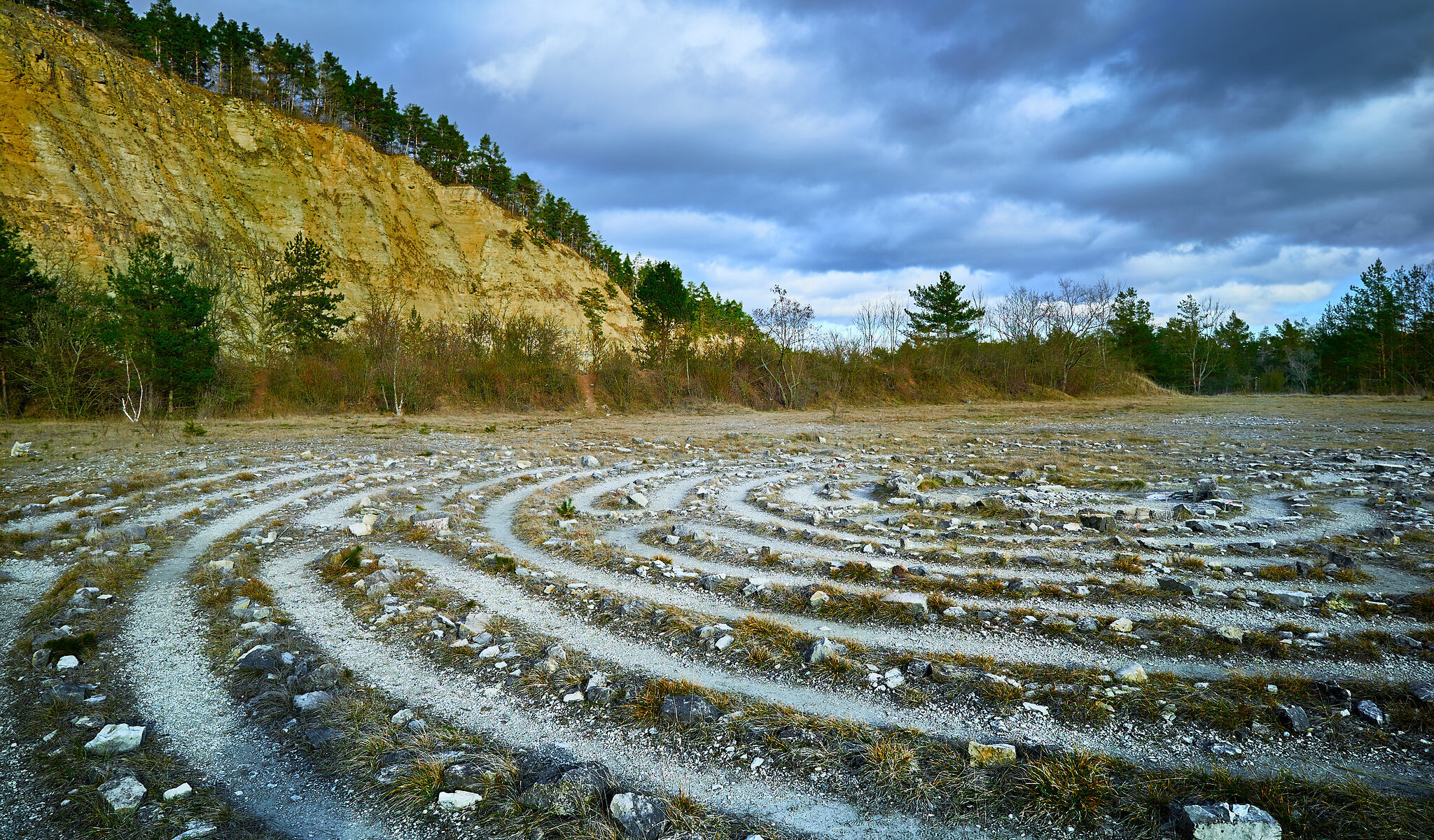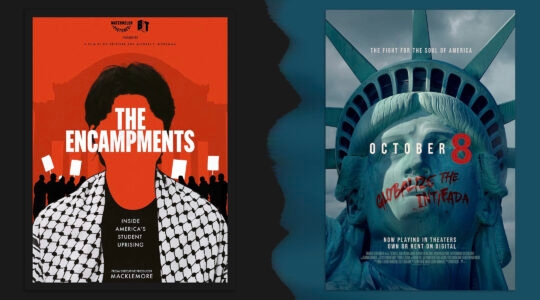(JTA) — This year we celebrated Passover early, on a Sunday a few days before St. Patrick’s Day. My adult children will disperse before the official holiday, but with the darkest days of the pandemic behind us, we have much to celebrate.
The house smelled of kugel, and I taught my two oldest daughters to add duck fat to the boxed matzah ball mix to make it taste like their grandmother’s recipe. As we opened the homemade Haggadah we have used since they were children, I told them of how I walked a labyrinth in the Utah heat to find freedom.
They know all about the skiing accident 12 months ago, and how I fell following my friend Jacklyn down a Canadian mountain, landing on my back, left barely able to walk, stand or bathe myself. But they need to hear the true story of how I healed.
I had told Jacklyn a dozen or so times that I forgave her, yet I hadn’t really. For months I tried to alleviate the pain, even trying to make peace with it. But I still blamed Jacklyn. Anger and resentment settled into my fractured pelvis, the pain and the stress put up wallpaper and new carpet in my heart, making themselves at home there.
Six months after the accident, I spent three days leading a small retreat in Utah watching a tribe of women I work with walk a labyrinth designed for meditation and forgiveness. It was only then that I found myself really ready. As I headed into the first circle of the labyrinth, I adjusted my sunglasses and tightened my back brace, the day getting hotter by the minute, “I really don’t want to forgive her.” I was heavily invested in being right, remaining angry. After all, I was right. I gulped and squinted into the burning sun.
First I prayed, using a practice that I know is powerful for purification, for shifting the feelings that had captured my mind and body, stuck in a negative tune. Bending over, I tied the laces on my shoe, a risky thing in itself, remembering that if my mind and thoughts were able to create my problems, they also held the power to solve them. I took my first few steps on the long red dirt path outlined by small rocks, feeling the tightness in my back. I thought of Jacklyn and said out loud, “I’m sorry. Please forgive me.” As the words left my mouth I felt the emotion twisting inside me. I kept walking. “I love you. Thank you. I’m sorry. Please forgive me.”
I say this until the first circle is complete, heading into the next layer of the windy pathway, whispering, “Why should I be sorry? It is her fault.” I walk and I whisper, wiping the sweat from my upper lip, thinking of the dozens of times Jacklyn has apologized. I think of the countless times I have told the story in the last months, impassioned, casting blame and painting her the villain. I whisper again, “I’m sorry. Please forgive me.”
As I continuously repeated the words in prayer, I felt my heart reaching out to hers somewhere in Seattle where she lives. Tears falling, I looked to the sky and saw the expanse of red rock. I closed my eyes, willing her to receive my words asking for forgiveness for punishing her with blame and anger. I looked out a few hundred feet from the center. Moments turned into minutes that turned into steps, my brain fumbling with time as I tried to estimate how long I have been walking. I feel a heaviness in my legs, the pain ever present. This is a process that knows no time. I turn my torso outward, moving slowly. Painstaking. There is still work to do.
“Jacklyn,” I said, “I appreciate that you listen with love and that you are a friend who speaks her heart.” She had flown to be by my side as my father died. I didn’t have many friends like Jacklyn, the “yes’ kind of friend, joining me in Croatia to celebrate my 50th birthday, joining me on a mission trip to Africa, watching whales breach each year in Maui, discussing husbands and books and work and raising kids who had suddenly become adults. I cried and laughed as I remembered. And as I looked up, I saw I had reached the beginning of the labyrinth, the place where I had started. I knew that in my walking I had freed myself, I had freed her, that I could forgive even though I might never forget.
Since then I have hiked other mountains and walked hundreds of miles, all without pain, the walk in the labyrinth my liberation. So I finish telling the story on the night of our makeshift Passover, the holiday of remembering, and of leaving our m’tzarim, our narrow, twisted places. Wiping the tears away over soup, I see the flecks of green in my oldest daughter’s eyes meet the flecks in mine.
“What we remember lives,” I say to her, to the three of them there, quoting the Frances McDormand character in the movie we have just watched.
“Freedom is so much more than a vaccine or the ability to move to a new city or take a new job,” I remind them as we read the Haggadah. I want them to know we have the freedom to let go of anger and resentment so they don’t live inside of us.
“If we don’t forgive,” I say, “we can never truly be free.”
JTA has documented Jewish history in real-time for over a century. Keep our journalism strong by joining us in supporting independent, award-winning reporting.







